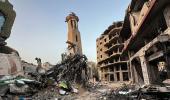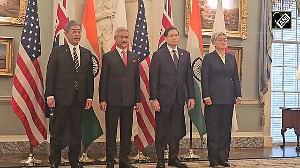More lives in Gaza are at risk from diseases than bombings, warns the World Health Organisation (WHO) amid the ongoing Israeli siege, Al Jazeera reported.

The critical infrastructure in Gaza has suffered extensively due to fuel and supply shortages, coupled with targeted attacks on hospitals and UN facilities, since Israel initiated strikes on October 7.
"Eventually we will see more people dying from disease than from bombardment if we are not able to put back together this health system," said Margaret Harris, a spokesperson for the WHO, speaking at a briefing in Geneva on Tuesday.
Harris emphasised the potential for more deaths from diseases than bombings if the health system is not reconstructed, as reported by Al Jazeera.
She termed the collapse of Al Shifa Hospital in northern Gaza a 'tragedy', with concerns about the detention of medical staff by Israeli forces who seized the complex.
Outbreaks of infectious diseases, particularly diarrheal diseases, are on the rise, exacerbated by a lack of medicines, vaccination activities, safe water, hygiene, and food.
"There are no medicines, no vaccination activities, no access to safe water and hygiene and no food," she added.
Gaza's key sanitation services have ceased, heightening the risk of widespread gastrointestinal and infectious diseases, including cholera.
With 2.3 million residents, half of whom are children, obtaining drinkable water has become nearly impossible.
The WHO has reported over 44,000 cases of diarrhoea and 70,000 acute respiratory infections, but actual numbers may be higher.
The approaching winter season raises concerns about rains and floods worsening the already dire situation.
"Hospitals are overwhelmed with children suffering from war wounds and gastroenteritis due to contaminated water. Without a change, there's a significant risk of more people falling sick, and major outbreaks could dramatically increase," warned Richard Brennan, WHO's regional emergency director.
Despite a temporary truce between Israel and Hamas, extended by two days, Gaza's Ministry of Health reports no fuel for generators in hospitals, maintaining a catastrophic humanitarian situation. Urgent and continuous aid entry is essential to alleviate the suffering of Palestinians in Gaza, emphasises UN official Tor Wennesland.
The absence of fuel threatens clean water supply and waste clearance, potentially leading to a public health catastrophe.
Clean-up efforts are underway at al-Shifa Hospital, Gaza's largest, with hopes of resuming its activities.
Israeli bombardment has claimed more than 14,800 Palestinian lives, including 6,150 children and over 4,000 women, according to health authorities in the enclave, Al Jazeera reported.











 © 2025
© 2025